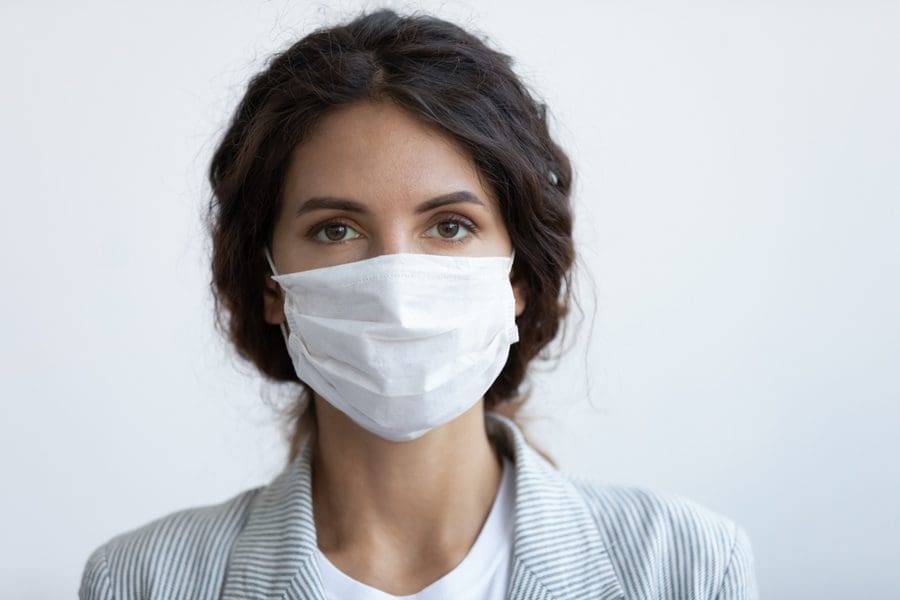Homemade cloth face masks help protect us from the spread of Covid-19, and they don’t come close to irritating skin the way N95 suction cups bruise and chafe health care workers. But wearing a reusable mask during a short run to the grocery store can leave an icky, sweaty feeling. You want to give your face some extra loving when you get home, and that’s a good thing. Dermatologists say proper care maintains a strong skin barrier. The stronger the skin barrier, the healthier your skin.
Good skin health defends against a whole lot of aggressors. Skin is a physical barrier against pathogens. Our skin plays an important role in retaining moisture and regulating our body’s temperature. Use these tips to soothe your skin after wearing a reusable face mask.
Wash after removing your face mask
Your face accumulates sweat and debris when you wear a face mask. Washing your face with a gentle cleanser or cleansing bar after taking off the mask is the first step in soothing irritation. Rinse with lukewarm water and avoid using hot water. It’s important to guard against compromising the skin barrier, so don’t splash on water that is too hot as it can be abrasive.
One gentle cleanser that won’t strip the skin of moisture is the non-foaming, fragrance-free CeraVe Hydrating Facial Cleanser (Click Here).
While dermatologists recommend following up cleansing with moisturizers, they also suggest temporarily shelving complex skin-care routines that treat other concerns such as acne. Ingredients in those treatments such as retinol, benzoyl peroxide, and tea tree oil could further irritate the skin.
Apply a moisturizer with skin barrier-boosters
After gentle cleansing, apply a moisturizer that contains ceramides, hyaluronic acid, and niacinamide. These are ingredients that combat dryness and irritation caused by the constant rubbing and friction of mask wear. Health workers know that everyday mask use can compromise the skin’s barrier, resulting in scrapes, dryness, and bruises. Hyaluronic acid increases hydration by drawing moisture from the environment into the skin, while niacinamide reduces redness by soothing the skin. Ceramides replenish the skin barrier.
All three ingredients can be found in Cetaphil Moisturizing Cream (Click Here).
Cover irritated skin with a protective ointment before bedtime
Give skin an extra dose of protection after your usual moisturizing routine and before bed by applying ointment or petroleum jelly with zinc oxide or dimethicone. A heavy-duty emollient may be more tolerable if you apply prior to bed. Leaving it on overnight gives it time to work.
Petrolatum-based ointments like Aquaphor and Vaseline soothe irritated skin and reinforce the skin’s protective barrier to prevent further trauma. Applying a protective ointment before wearing your mask helps to reduce abrasion.
Try CeraVe Healing Ointment (Click Here).
When to seek a dermatologist
See a dermatologist If you are experiencing any sort of infection. Many dermatologists are offering some services by telemedicine, so you may want to schedule a virtual appointment or consultation. Your doctor may use teledermatology to prescribe a treatment such as steroid patches or topical antibiotics. A board-certified dermatologist can likely use a virtual visit to diagnose some inflammatory skin conditions and address skin conditions such as acne and psoriasis.






